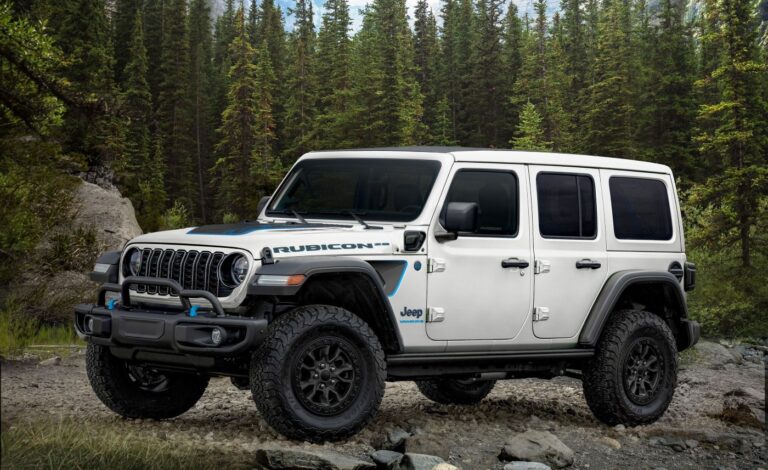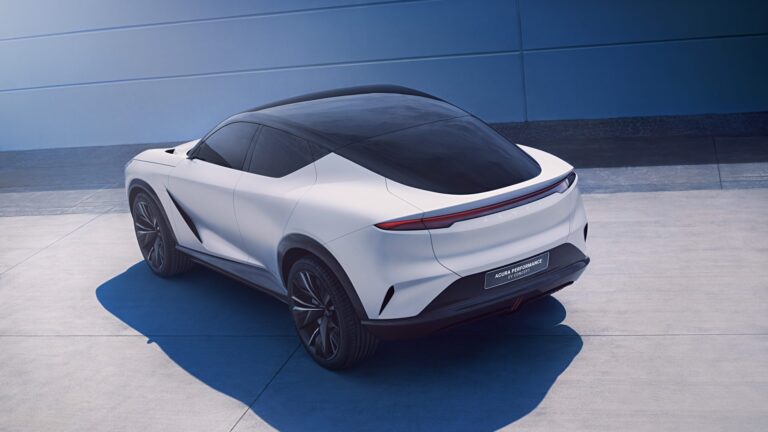Over time, vehicles have become increasingly economical and fuel-efficient, largely due to car manufacturers focusing on hybrid and electric technology. For many car buyers, fuel efficiency plays a crucial role in the decision-making process.
With that in mind, we have compiled a list of the top 10 most economical cars for you to consider. Our selection is based on the following criteria:
- Must feature an internal combustion engine
- Utilizes WLTP figures
- Achieves more than 50mpg
The Top 10 Best Mileage Cars of 2025
10. Peugeot 108 (2014 – 2022) – 58.9mpg

Unveiled at the Geneva Motor Show in March 2014, the Peugeot 108 is a stylish city car designed as a successor to the 107. Its compact size and efficient performance make it an excellent choice for new drivers. The entry-level 1.0-litre petrol engine variant stands out as one of the most fuel-efficient petrol-powered vehicles available. This three-cylinder engine delivers 72bhp and 93Nm of torque, allowing the car to accelerate from 0-62mph in 13.8 seconds. With a fuel economy of up to 58.9mpg (WLTP) and NEDC figures ranging from 68.9 to 74.3mpg*, the Peugeot 108 strikes a balance between efficiency and affordability.
Production of the Peugeot 108 came to an end in 2021, with no direct successor announced. However, there is still a wide selection of used models available for purchase. With its combination of practicality and lively performance, the Peugeot 108 remains an attractive choice for budget-conscious drivers.
9. Kia Niro (2020) – 53.3-61.4mpg

The Kia Niro made its debut in 2016, bringing a new level of efficiency to the competitive crossover segment. As the first vehicle in its class to feature a 1.6-litre petrol hybrid engine, it quickly established itself as a trailblazer. A pre-owned Kia Niro 2 1.6 GDi Hybrid offers an impressive combined fuel economy of up to 61.4mpg*. The NEDC figures indicate an even higher range, between 64.2 and 76.3mpg. This model pairs a four-cylinder petrol engine with a 32kW electric motor, eliminating the need for plug-in charging.
Despite being the entry-level trim, the Niro 2 is generously equipped with a variety of safety, driver-assist, and infotainment features. Delivering 139bhp and 147Nm of torque, it accelerates from 0-62mph in 11.5 seconds. Thanks to its practicality, versatility, and fuel efficiency, the Kia Niro continues to be a popular choice for drivers seeking an economical hybrid crossover.
8. Renault Clio (2020 – present) – 67.2mpg

For those seeking a highly fuel-efficient diesel car, the Renault Clio is a strong choice. Since its debut in 1990, the Clio has gone through five generations, with the 1.5 dCi 85 variant delivering up to 67.2mpg*. This makes it a particularly great option for drivers who frequently travel on motorways.
Powered by a four-cylinder diesel engine, this version produces 90bhp and 220Nm of torque, reaching 0-62mph in 12 seconds. Certain used models may also come equipped with Renault’s Traffic & Motorway Assistance Pack—an advanced driver assistance system that enables the car to automatically accelerate, brake, and steer in low-speed traffic conditions. This feature helps maximize fuel efficiency while enhancing overall driving convenience. With its reputation for reliability, affordability, and economy, the Clio remains a standout supermini.
7. Toyota Corolla (2019 – present) – 57.6-62.8mpg

The 2020 Toyota Corolla Hybrid is widely recognized as one of the most economical vehicles on the road. Available in both estate and hatchback configurations, opting for the 1.8-litre VVT-I Hybrid Icon estate edition will provide an impressive fuel efficiency of up to 62.8mpg*. The NEDC figures report an even higher rating of 85.6mpg. The car’s four-cylinder petrol engine works in conjunction with an electric motor, generating a total output of 122bhp and 142Nm of torque. This setup allows the Corolla to accelerate from 0-62mph in 10.9 seconds.
One of the standout features of the Toyota Corolla is its innovative MyT app, which enables remote control of various vehicle functions. This includes pre-conditioning the climate control system before entering the car—an especially useful function for chilly winter mornings.
6. Hyundai IONIQ (2019) – 62.8mpg

If you’re in the market for one of the most fuel-efficient cars available, the Hyundai IONIQ is a strong contender. A pre-owned 2019 Hyundai IONIQ with a 1.6-litre engine in the Premium trim delivers an impressive combined fuel economy of up to 68.2mpg*. The NEDC test places this figure even higher at 78.5mpg. Under the hood, its four-cylinder petrol mild-hybrid engine produces 141bhp and 265Nm of torque, accelerating from 0-62mph in 10.8 seconds—slightly quicker than the Toyota Corolla. The vehicle also boasts a top speed of 115mph. Meanwhile, the plug-in hybrid variant features an 8.9Wh battery, allowing for an electric-only range of 32 miles.
The 2019 facelift introduced Hyundai’s signature ‘cascading’ grille, which features active air flaps designed to optimize fuel efficiency. These vents adjust dynamically, opening and closing to reduce aerodynamic drag and limit unnecessary air intake at higher speeds. Thanks to these efficiency-boosting elements, the Hyundai IONIQ is undoubtedly among the most economical vehicles available in the UK.
5. Volkswagen Golf (2020 – Present) – 60.9-63.1mpg

If you want a fuel-efficient car with a strong road presence, the Volkswagen Golf is a solid choice. Since its introduction in 1974, this model has evolved across eight generations while maintaining its status as one of the world’s most popular cars. The Mk8 Golf, launched in 2020, does not undergo NEDC testing.
Powered by a 2.0-litre, four-cylinder turbocharged direct injection diesel engine, this version delivers 115bhp and 300Nm of torque, achieving a 0-62mph time of 10.2 seconds. With an impressive fuel economy of up to 63.1mpg*, the Golf offers a refined and spacious cabin, packed with advanced driver assistance technology.
A Mk8 Volkswagen Golf TDI is a prime example of German engineering, delivering both efficiency and driving pleasure.
4. Škoda Octavia (2020 – Present) – 67.3mpg

The Mk4 Škoda Octavia is another fuel-efficient car worth considering. Sharing its platform with the Volkswagen Golf, the Octavia is often regarded as offering Passat-like space at Golf-like pricing. This makes it an excellent option for those seeking a balance of practicality, performance, and affordability.
Choosing the 2.0-litre, four-cylinder TDI diesel engine provides up to 67.3mpg*. With 116bhp and 300Nm of torque, it accelerates from 0-62mph in 10.3 seconds. Available in both hatchback and estate configurations, the Octavia is a well-rounded choice for fuel-conscious buyers.
3. Vauxhall Corsa (2019 – Present) – 70.6mpg

If you’re searching for a fuel-efficient car that isn’t a hybrid, the Vauxhall Corsa is a great option. The 2019 redesign, following the PSA Group’s acquisition of Vauxhall, brought a fresh look to this popular hatchback. Opting for the Corsa F model with a 1.5-litre, four-cylinder turbo diesel engine delivers an impressive 70.6mpg*.
Since this version of the Corsa was introduced post-2019, it does not have an NEDC rating. As one of the most fuel-efficient diesel cars available, it offers 100bhp and 250Nm of torque, reaching 0-62mph in 9.6 seconds.
Inside, the Corsa is packed with modern features, including a touchscreen infotainment system and a heated steering wheel—perfect for chilly mornings. Combining efficiency, style, and technology, the Corsa is a practical and fun-to-drive choice.
2. Mercedes-Benz E300de (2016 – Present) – 176.6-201.8mpg

The Mercedes-Benz E300de remains one of the most fuel-efficient cars available in the UK in 2025, offering a combined fuel economy of 176.6-201.8mpg*. Available in both saloon and estate variants, the E-Class is packed with safety features, driver assistance technology, and state-of-the-art in-car entertainment.
This plug-in hybrid pairs a 2.0-litre, four-cylinder diesel engine with an electric motor, generating 311bhp and 700Nm of torque. While its fuel economy range is slightly lower than that of the BMW 330e, it offers a quicker 0-62mph time of 5.7 seconds. Additionally, with a fully charged battery, the E300de can travel up to 30 miles on electric power alone. If you’re seeking both luxury and efficiency, this model is an excellent choice.
1. BMW 330e (2019 – Present) – 201.8-217.3mpg

A used BMW 3 Series manufactured from 2019 onward remains one of the most economical options available in 2025. The 330e hybrid boasts an impressive combined fuel economy of 201.8-217.3mpg*. It features a 2.0-litre, four-cylinder internal combustion engine paired with an electric motor, delivering a total output of 288bhp and 420Nm of torque. With a 0-62mph time of just 5.8 seconds, the 330e provides both fuel efficiency and high performance.
Inside, the 330e offers advanced driver assistance systems, cutting-edge infotainment, and a refined, luxurious cabin. Additionally, BMW’s EfficientDynamics strategy is embedded across its vehicle range, aiming to optimize fuel consumption and lower CO2 emissions—reinforcing BMW’s commitment to efficiency.



